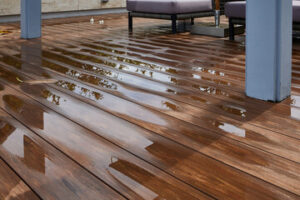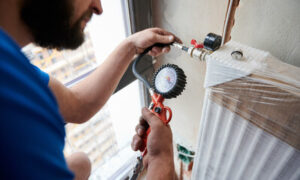Water damage can be a costly issue for property owners. It can lead to the need for repairs, a reduction in home value and even health hazards like mold or mildew.

Fortunately, many causes of water damage are preventable. Regular maintenance, including yearly inspections and cleaning out clogged gutters, can help prevent unwelcome water intrusion.
Water may be life-giving, but it is also one of nature’s most destructive forces. When it invades areas it shouldn’t, the results can be disastrous for your home or business. It can wreak havoc on everything from flooring and furniture to rotted walls and foundations. It can also lead to serious health problems if not handled quickly and properly. Whether it’s caused by natural disasters, plumbing issues, or excessive moisture, water damage is a serious problem for commercial and residential properties alike.
The most common cause of water damage is from a leaky plumbing system. Whether it’s from a broken pipe, a burst water heater or a leaking roof, any type of leak will affect the surrounding area. The best way to prevent this is to routinely check and insulate pipes in crawl spaces, basements and attics to keep them from becoming damaged over time.
Other sources of water damage include flooding from heavy rains or hurricanes and a faulty HVAC system. If a cooling unit or water heater isn’t properly maintained, it can develop condensation problems and leak water into the property. It’s important to listen for any sounds coming from the attic during a storm, as this is often a sign that there is water damage to the structure.
Another cause of water damage is sewage backup, which is considered the worst of the three categories of water damage. It is a dangerous, unsanitary condition that requires immediate attention from a professional water mitigation company. This type of water is often black in color and contains contaminants that pose a risk to human health.
If you’re unsure whether or not your water damage is new, you can use your hands to feel the surface of the affected material. Fresh water damage will feel firm and dry, while old damage will have a mushy or squishy texture. This is a good indication of how long the moisture has been present in the affected materials and how severe the damage may be. Water damage that’s left untreated can result in the growth of mold and mildew, which will then lead to more extensive (and expensive) repairs down the road.
Symptoms
The damage caused by water in a home can range from minor to devastating. It can destroy drywall, wood, and furniture and lead to the growth of mold that can affect your family’s health. Mold and mildew can also lead to structural damage in your home, such as sagging or warped walls. Fortunately, you can take steps to prevent and treat water damage before it gets out of hand.
Look for signs of a leak in your home, such as pools of water or moisture spots. These can be a sign of major problems like roof leaks or broken water pipes.
Another sign of a leak is the sound of water dripping, especially during the quietest parts of your home, such as at night. Listening carefully can help you identify these sounds, which may be different from the usual sounds of your home. For example, a scratching noise could indicate that wood is being damaged by water.
Paint bubbles are a common sign of water damage. When paint or wallpaper is exposed to moisture, the materials lose their adhesion to drywall and other surfaces. The resulting discoloration can be easy to spot, even on solid colors like white or black. However, the stains can be more difficult to detect on dark wall paper or painted walls with shadows that camouflage the discoloration.
Other signs of water damage include swollen or softened drywall. Place your hand on the drywall and feel for any areas that are softer than others. You may also notice that these areas appear lighter than the rest of the wall. This is because the drywall has soaked up water and expanded.
You should also look for signs of a musty or mildewy smell. Mold and mildew can grow in moist areas, and if they aren’t treated immediately, they can lead to further damage and health risks for your family.
Some types of water damage can be repaired quickly, especially if the cause is from a small leak in a pipe or from a storm that causes sudden flooding. But other types of water damage can be more severe, and they often require professional restoration. It’s important to keep up with regular maintenance, like yearly inspections of your roof and gutters, to catch any problems before they turn into an unwelcome disaster.
Repairs
Water damage can cause many different problems that are difficult to fix and will ultimately cost you more money in the long run if left untreated. Whether your home is experiencing minor water damage from a flood or major water damage from a burst pipe or flooded basement, the longer you wait to call a professional the more serious the issues will become.
Water restoration specialists use advanced equipment to properly repair your property and contents after a flooding disaster. They will start by identifying the source and stopping the flow of water to prevent further damage. They then take steps to dry out the affected areas as quickly and efficiently as possible. This includes using air movers, dehumidifiers, and other professional grade equipment.
They may also remove items that can’t be saved, such as drywall down to the studs and carpeting to the subflooring. The removal process is typically done before any drying takes place because it can help speed up the overall drying time.
Once the area is dry, they will replace any materials that have been impacted by the water, such as drywall and flooring. They will also apply antimicrobials to prevent the growth of mold. It’s important to note that even if the affected materials appear dry, they still need to be tested for moisture content with a professional-grade moisture meter. Moisture that isn’t detected can lead to a number of problems, including structural damage and wood rot, as well as health complications for you and your family.
Another step in the water restoration process is repairing any items that were affected by the water damage, such as furniture, pictures, and other household goods. Water damage repair is often one of the most costly parts of owning a home, so it’s crucial to act quickly when it occurs.
Water damage is a common problem for homeowners, and it can be devastating if not dealt with immediately. The sooner you hire a professional, the better chance you have of saving your belongings and your home. If you’re unsure whether or not your situation warrants a professional, contact a trusted local water damage restoration company for more information and advice.
Insurance
Your home insurance protects your house and belongings against a wide range of perils, including water damage. However, what is covered may be complicated. Generally speaking, home insurers cover water damage that is sudden and accidental. This includes, for instance, a burst pipe, but not a slowly leaking icemaker. Also, flooding is usually not covered by standard homeowners insurance(opens in new window). Instead, separate flood insurance coverage may be necessary.
When you suffer water damage, the first step is to take (reasonable) measures to prevent additional damage, such as shutting off the water and removing personal items from the affected area. It’s important to do this to help avoid further damage and to save your belongings, especially if they are of value. It’s also a good idea to call in an expert to evaluate the damage and make any necessary immediate repairs. Finally, it’s a good idea to make a list of your lost property and keep receipts for any expenses that you incur.
Once you’ve done this, it’s time to contact your insurance company and report the loss. As soon as you do, the insurance adjuster will visit your home to assess the damage, taking photos and making measurements. The insurance adjuster’s goal is to estimate how much the repair work will cost and to determine whether or not you have enough coverage to cover your losses.
While your basic homeowners policy may have a limit on how much it will pay for your damaged possessions, you can increase this amount by purchasing dwelling replacement coverage. This will reimburse you for up to 30% above your home insurance limit, so that you can get your home back to normal. Another option is schedules items coverage, which will provide extra reimbursement for expensive furniture and electronics that are damaged by water.
While it is true that most home insurance policies exclude floods, it’s possible to buy separate flood insurance coverage(opens in new window). You can also purchase a separate earthquake policy to cover the potential damage from earth movement, like landslides and erosion, that might cause water seepage or infiltration.




